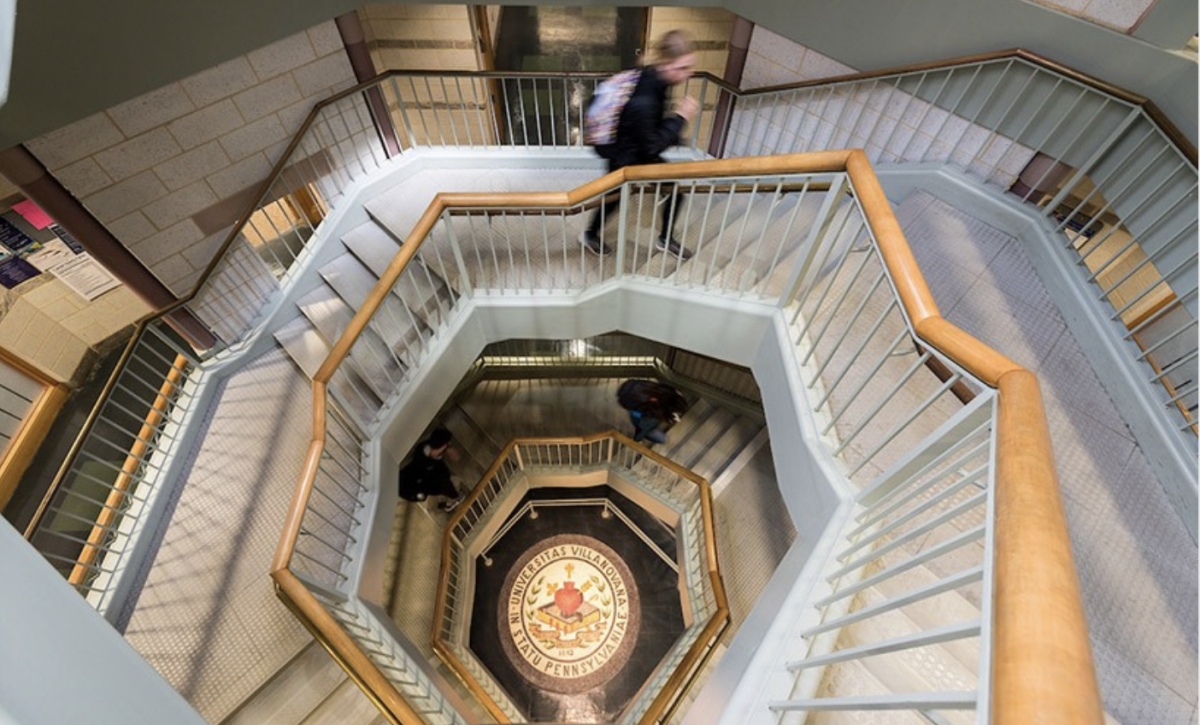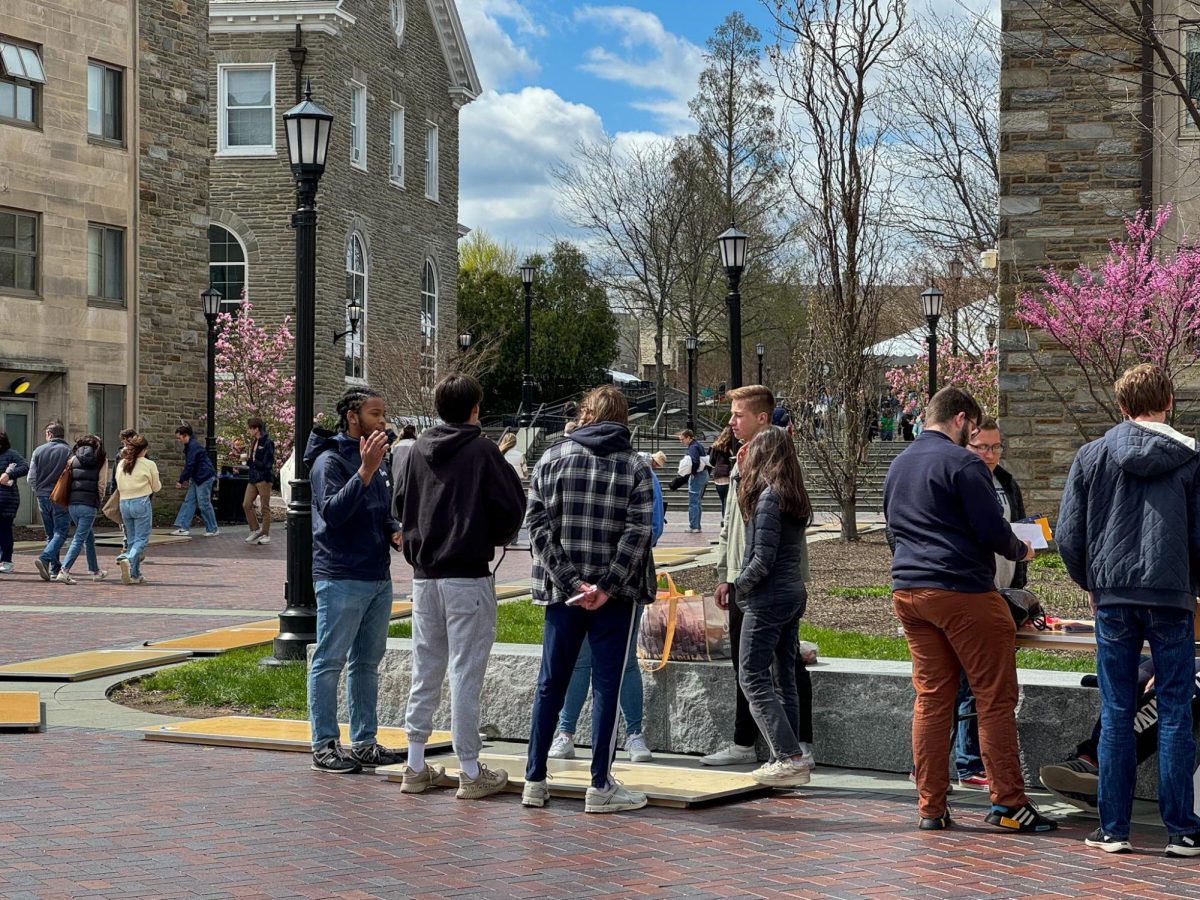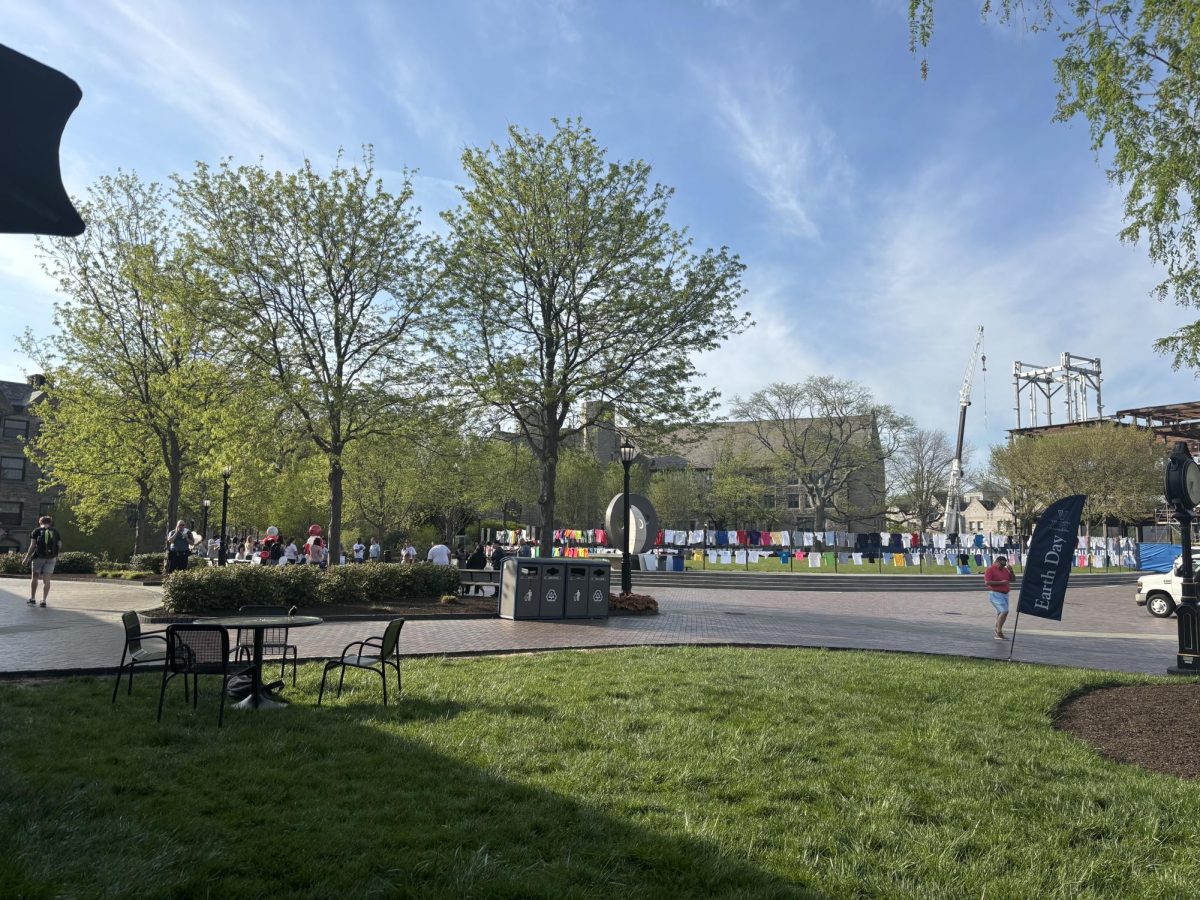Held as a part of the Villanova Philosophy Department’s Speaker’s Series, Villanova Ph.D. alumnus Michael Shaw (‘06) returned to the University to explain his newest research he has spent the past few years on, Aristotle’s interpretation of the pre-Socratic philosopher Empedocles. He currently teaches at Utah Valley University.
Shaw was introduced by the Department of Philosophy’s Chairperson, Dr. Julie Klein, who worked with Shaw during his Ph.D. of Philosophy at Villanova University. While introducing him and his topic, which has found itself some pushback in the philosophy world, she noted that Shaw is “…a true student of Ancient Greek philosophy…[and] an amazing teacher.”
Before he started, Shaw sung the praises of the Villanova department and its program.
“I love Villanova, I love the philosophy program, I love all the graduates,” he said.
Then, he began his lecture on what he called “Matter and Motion.” It was in fact this Ph.D. program at Villanova that would push Shaw to be invested in the pre-Socratic philosophers, Empedocles being his focus.
As the title implies, Shaw has proposed a new interpretation of Empedocles’ philosophy, one that deviates from the popular and often followed Aristotelian scholar view. Shaw argued a number of inconsistencies in Aristotle’s thinking, and the classic Ancient Greek question, “What is change?”
While the topic was complicated, he kept the audience engaged throughout, giving handouts to clearly define and explain his points in a way that was digestible. Throughout most of the lecture he joked that it was “…difficult to fit it all onto just six pages.” He also had more thoroughly written articles soon to be published within the Boston Area Colloquium in Ancient Philosophy later this year, which he handed proofs of to students if they wanted more information.
Shaw was extremely clear with even complicated concepts, reading out and explaining translations of Empedocles.
“When dealing with the pre-Socratics, we are dealing with fragments,” Shaw said, laying out some of those fragments for the audience for them to see.
Empedocles specifically was the philosopher that came up with the theory of the four elements; fire, earth, aether and water–and how their motion is created with the elements love and strife. But Shaw’s main point stands in how these elements are interpreted by Aristotle.
And to help explain Empedocles’ concepts of love and strife, he brought back Klein.
“I am different from [Klein] because there is strife between us,” Shaw said.
Shaw’s research hinges on the idea that both love and strife can bring elements together and pull them apart, which Aristotle mostly refutes.
Shaw’s work is extremely complicated, which is why this portion of the Speaker’s Series was also followed by a small reception. Students were able to additionally question Shaw, as some had questions even he couldn’t answer within the time frame. Among drinks and gourmet ice cream, students were able to extend conversations and speak with faculty. But with philosophy, the conversations never end, and so the Speaker’s Series has given undergraduate students at Villanova (who are required to take Philosophy 1000) a chance to explore ideas they may be interested in, and explore a new department within the College of Liberal Arts and Sciences.
The Speaker Series had a successful turnout, and an engaged crowd that it will hopefully continue to attract, and continue the tradition of teaching critical thinking and questioning, even if we’re questioning our most famous and trusted sources, like Aristotle.







